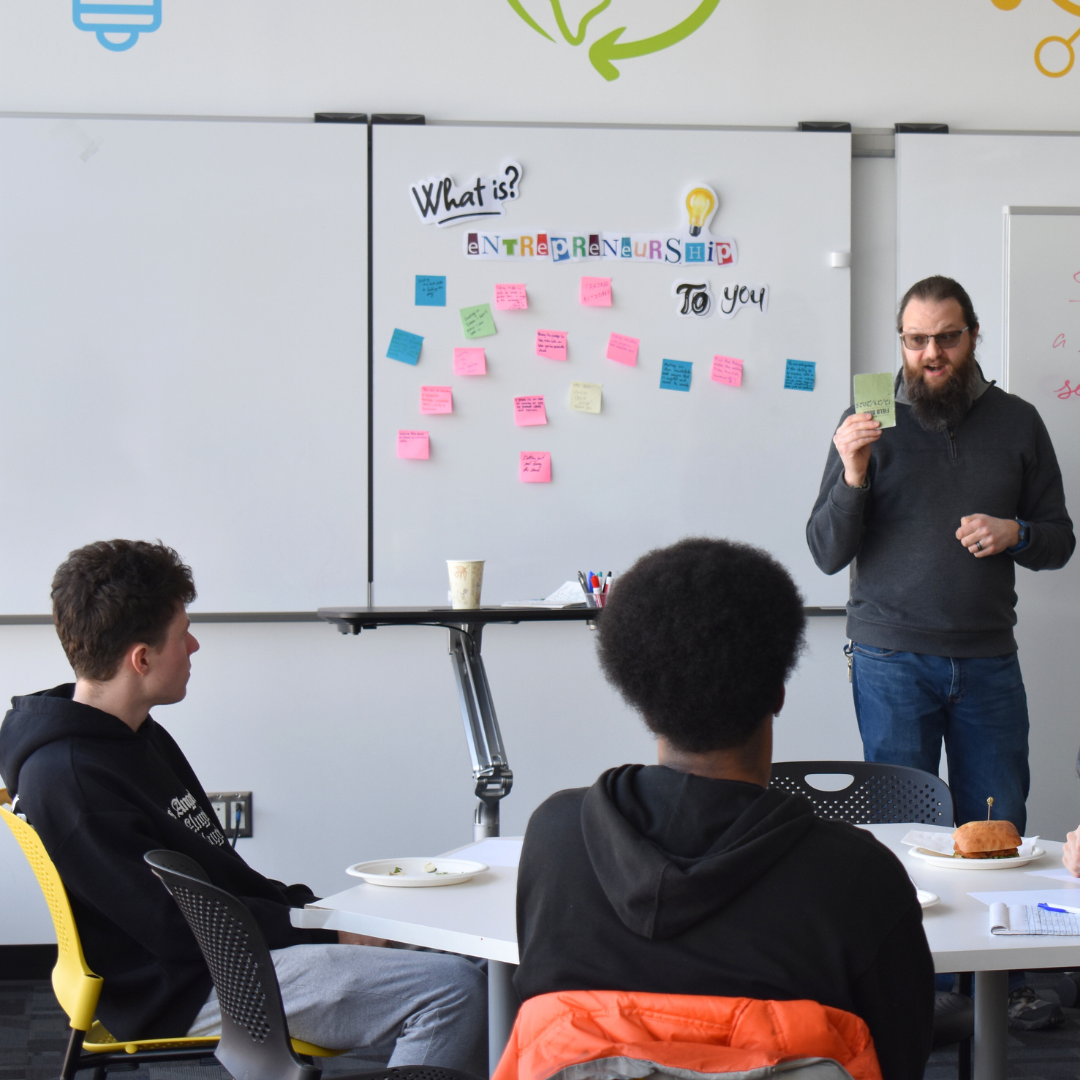The seemingly endless possibilities that come with forming a business idea can be overwhelming, especially considering the number of problems to be solved. GaelVentures Program Manager Rob Kissner sought to help students at all stages of idea generation to sculpt ideas into viable opportunities with the Idea Generation workshop.
The primary consideration when forming an idea is what issue(s) the idea is meant to address. At the core of every idea is a desire to produce a certain outcome, and the most common outcome is solving a preexisting problem.
“Find issues that bother you,” Kissner explains, “Transform that into an actionable thought – an idea.” Entrepreneurs frequently keep a list of problems they encounter throughout their day-to-day life, similar to a journal. This list makes it easy to generate ideas with a clearly defined purpose.
While having a problem in mind when generating an idea is important, it is also important to remember that ideas do not exist in a vacuum. The development of any business idea is dependent upon standard industry conditions.
Kissner believes that researching the industry an idea will be intertwined with is essential to the successful idea implementation. Industry research typically takes the form of competitor research, which entails analyzing the strengths and weaknesses of prior business models as valuable lessons. “See what challenges local business owners have. Learn from precedent,” Kissner says.
Beyond the implementation stage, it helps to recognize that ideas possess an inherent capacity to evolve beyond the intended scope.
Kissner refers to this capacity as scalability, and links consideration of business idea scalability with the long-term sustainability of an idea. “Scalability is essential,” Kissner argues, “How can you continue to provide your strengths, while making your business sustainable and scalable?”
Since a problem can expand in magnitude, it is only natural that an idea should be able to expand as well. Scalability measures how well a business idea can adjust to changing demands. The most scalable business ideas tend to be ones that are open to change and are aware of compatible opportunities to expand.
As demonstrated with scalability, the idea generation stage of a business is important to address and review for businesses in pre-implementation and post-implementation stages.
Jared Balcacer ’26 is a student entrepreneur who attended the workshop and runs a florist service. Balcacer attended the workshop and benefitted from the one-on-one advising Kissner offered to all students during the workshop. Kissner encouraged Balcacer to expand his customer engagement by networking with entrepreneurs in the wedding industry.
“I wanted to create a florist service where flowers stay as meaningful as when you first gave someone the flowers,” Balcacer describes as his business’s mission. The advice Kissner offered ultimately drew upon the founding premise for Balcacer’s florist service, illustrating that the foundation of a business idea influences the idea at all stages of evolution.






